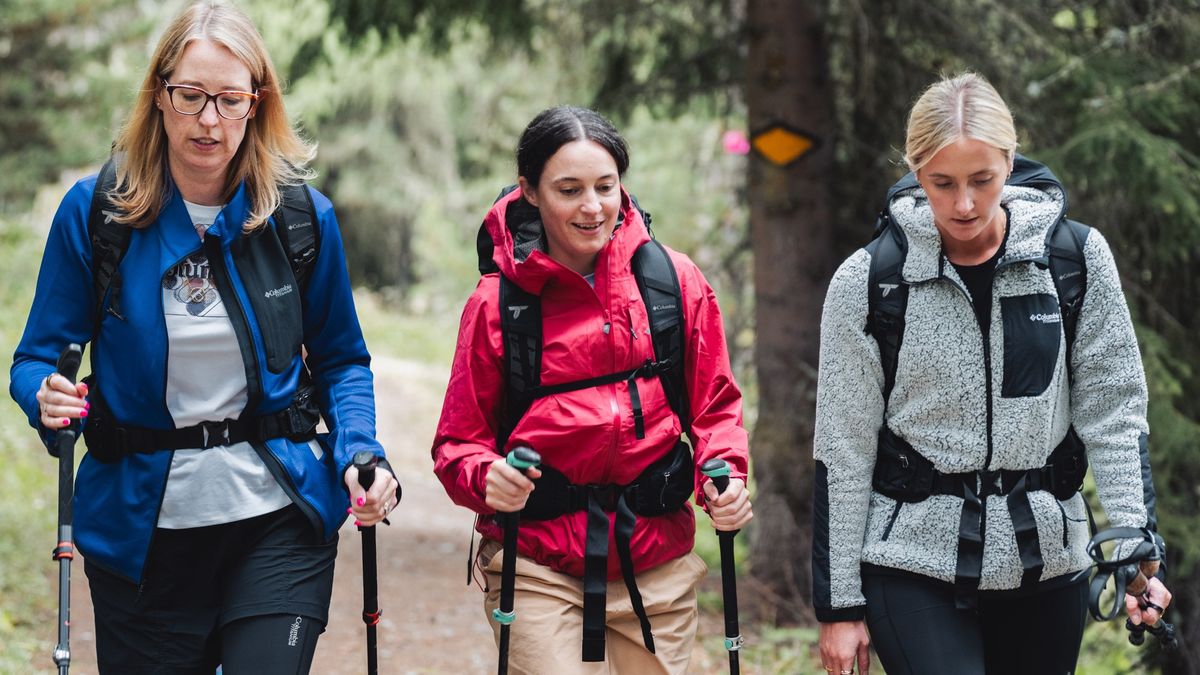World
He’s back: Aspen downhiller Wiley Maple’s full return to World Cup begins at Beaver Creek

Madeleine Osberger/Courtesy photo
There’s an ongoing joke among self-funded, “independent” professional skiers.
“We’re amateur skiers, but we’re professional bag transporters,” former World Cup skier Will Gregorak quipped.
Gregorak once again joins Aspen’s own Wiley Maple, 34, as his technical advisor. Together, they will lug quivers of equipment — up to 10 bags weighing an estimated 75-100 pounds, worth thousands of dollars in custom-tailored skis — through international security checkpoints and customs booths.
Maple, having rebounded from a lumbar spinal fusion and an injury-induced retirement in 2020, made a remarkable comeback to the professional circuit last season. The defining moment came when the former U.S. Ski Team member nabbed a 12th-place, World Cup finish at Bormio, Italy — the same race where Swiss sensation Marco Odermatt took silver.
“The biggest shining moment was my return to the World Cup after four years at the same place I had retired and just being totally petrified of racing this really gnarly downhill and Bormio again, and hoping not to die or just make a total fool of myself,” Maple said. “That was just a total shock and, at the same time, validating for the pursuit of even putting the race boards on again.”
This triumph solidified his full return to the World Cup tour this season, which begins Friday with the Birds of Prey downhill race at Beaver Creek. And without national team support and massive sponsorships, he and Gregorak plan to personally defray airfare, hotels, training, medical needs, labor — and of course carry hefty ski bags through France, Austria, Italy, and back to the U.S. — all winter long.

For support, Maple is hosting a fundraiser from 5-8 p.m. on Tuesday, Dec. 10, at Aspen’s Mi Chola, 411 E. Main St. Oil paintings created by the World Cup racer will also be available for purchase.
“It’s easily between $100,000-$150,000 to go through the season, all said and done,” Gregorak said. “Doing a fundraiser like this is to hopefully offset some of the costs.”
Maple has had essentially only one fully-funded season throughout his entire career. The Aspen High School graduate and Aspen Valley Ski and Snowboard Club alum made the U.S. Ski Team in 2008, a time otherwise known as the Great Recession. The economic turmoil caused many downhill athletes to be dropped from their teams, forcing them to self-fund.
“Wiley’s history with the U.S. Ski Team, of years being on it and off of it, I think it’s big for him to have success, as he defines it on his own,” Gregorak said. “But at the same time, doing it on his own involves a tremendous amount of work; obviously on the physical end but adding the mental side of having to be on top of being the director of his own program is a lot to handle while you’re just trying to get in the zone and activate yourself well for going into wild ski races.”
Maple has, of course, relented amid this financial reality. He has so far competed in six World Pro Ski Tours, while he paid his way to the 2018 Winter Olympics downhill appearance at Pyeongchang, South Korea. He said, if all goes accordingly, his second professional wind will extend to the 2026 Winter Olympics in Italy.
“It was a tremendous effort to come back and to have great success last year was awesome and to have nothing change on the funding and ski team front was definitely disheartening,” he said. “Having made this huge effort, being successful in it, just to be in the same spot.”
Maple said his ultimate goal for this new season is to finish at least top 30 in the world and “just keep stepping up the rungs.”
“I would love to win a race,” he said. “That would be all-time.”
For Maple, however, enduring additional dangerous seasons on the professional circuit, with even the tiniest errors costing several thousand dollars of surgery, isn’t all about personal accolades or avoiding a desk job.
There’s a distinct cutthroat nature to professional skiing. It is typically commonplace for athletes to get dropped from national teams if they’re not producing transcending results, and his goal is to use his future exploits to change this, saying, “I’ve seen too many athletes just get thrown aside.”

In other words, the more races he wins, the more influence and power he can use to pressure other teams and the U.S. to galvanize athletes to create their own union.
“The motivation was to hopefully break the system by not using the system and creating other opportunities for future athletes to be able to potentially not have to ski on a national team, and to move in and out of teams, just like any other professional sport,” he said. “If you’re not getting along with the Broncos’ coaches, you can change to the Patriots.”
Gregorak emphasized his reasons for supporting Maple, saying, “He’s an incredibly resilient person.”
“For me, in many ways, it’s to help a ski-racing story turn out better than my own personal one did. I was a World Cup skier myself and thought I had the potential to get podiums on the World Cup, but I won’t go into how my story fell apart,” Gregorak said. “But it didn’t necessarily have to, and it didn’t have to work out that way…
“It’s to see it work out differently for one of my buddies.”
Maple’s efforts will be featured in an upcoming film called “Rogue Lines.” To learn more about it, visit skiracing.com/introducing-rogue-lines-sync-performance-announces-the-production-of-an-inspirational-film-on-athlete-dedication.
Ray K. Erku can be reached at (970) 429-9120 or rerku@aspentimes.com.










